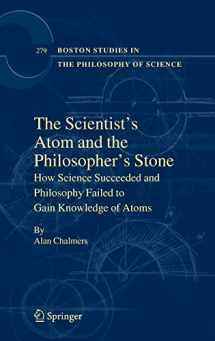
The Scientist's Atom and the Philosopher's Stone: How Science Succeeded and Philosophy Failed to Gain Knowledge of Atoms (Boston Studies in the Philosophy and History of Science, 279)
Book details
Summary
Description
Drawing on the results of his own scholarly research as well as that of others the author offers, for the first time, a comprehensive and documented history of theories of the atom from Democritus to the twentieth century. This is not history for its own sake. By critically reflecting on the various versions of atomic theories of the past the author is able to grapple with the question of what sets scientific knowledge apart from other kinds of knowledge, philosophical knowledge in particular. He thereby engages historically with issues concerning the nature and status of scientific knowledge that were dealt with in a more abstract way in his What Is This Thing Called Science?, a book that has been a standard text in philosophy of science for three decades and which is available in nineteen languages. Speculations about the fundamental structure of matter from Democritus to the seventeenth-century mechanical philosophers and beyond are construed as categorically distinct from atomic theories amenable to experimental investigation and support and as contributing little to the latter from a historical point of view. The thesis will provoke historians and philosophers of science alike and will require a revision of a range of standard views in the history of science and philosophy. The book is key reading for students and scholars in History and Philosophy of Science and will be instructive for and provide a challenge to philosophers, historians and scientists more generally.


We would LOVE it if you could help us and other readers by reviewing the book
Book review



